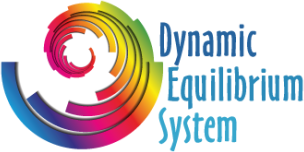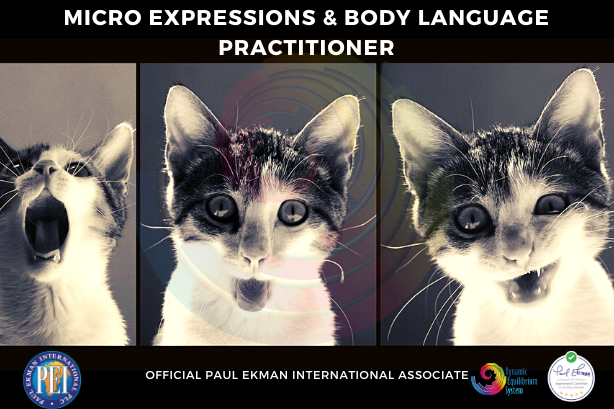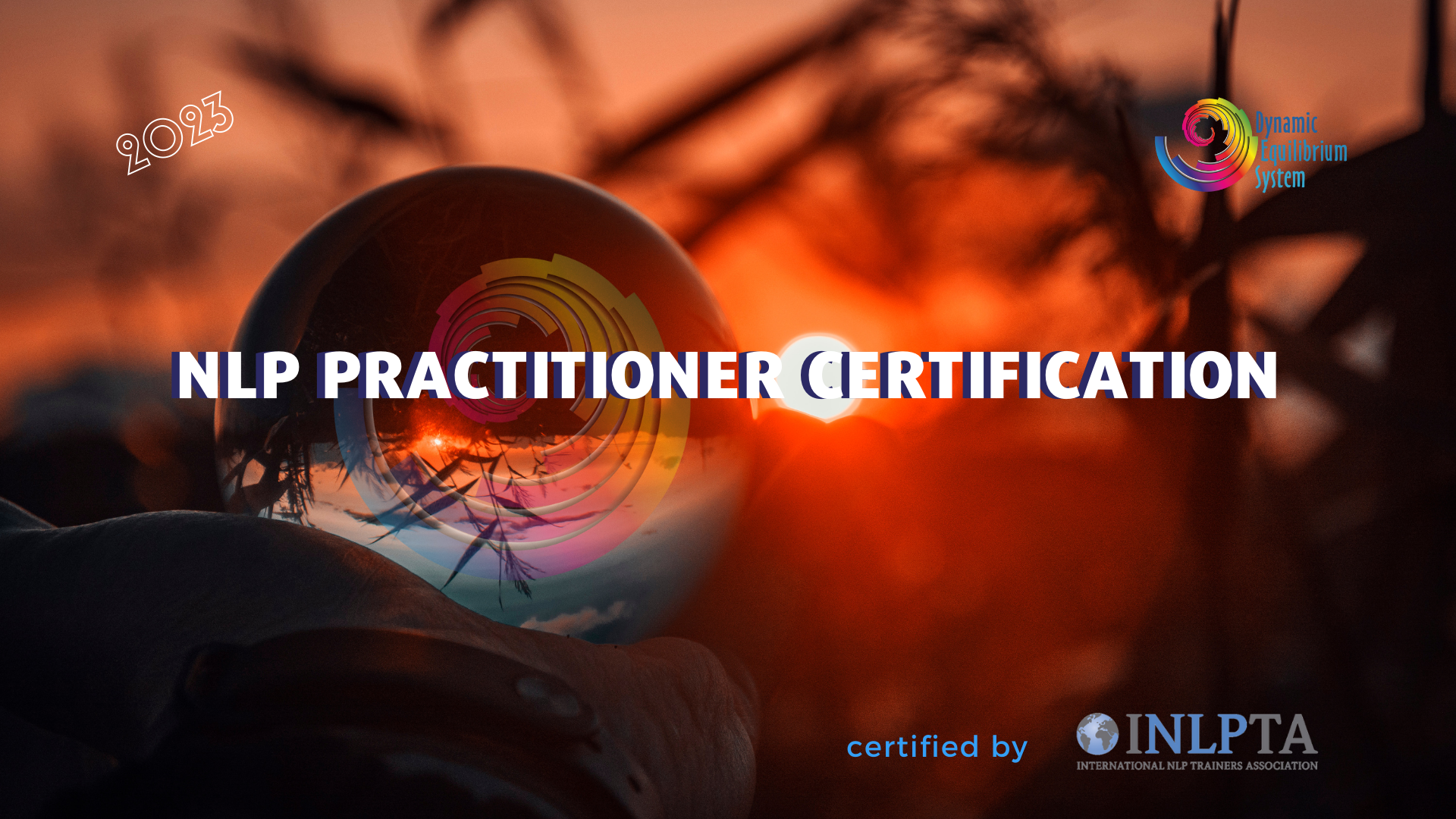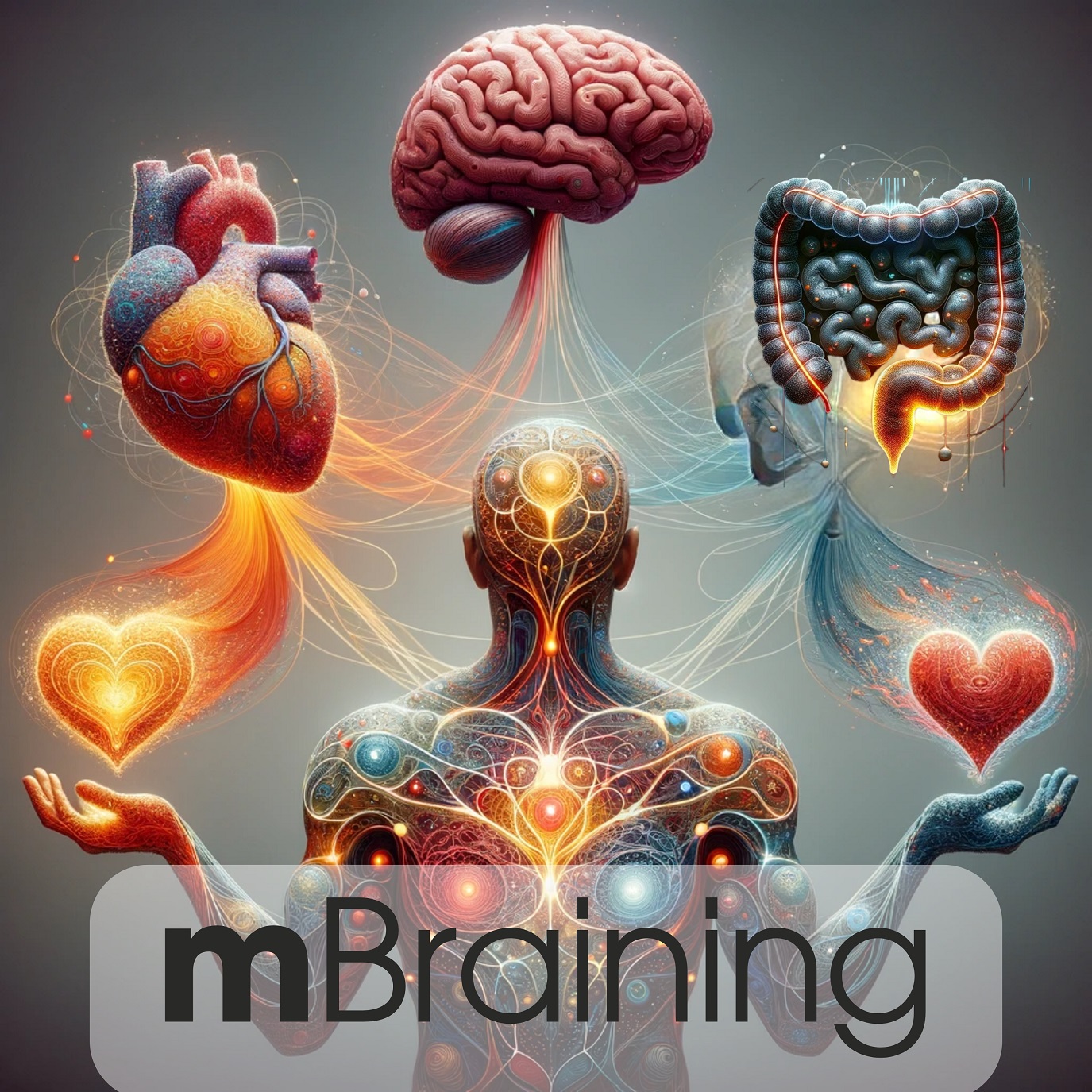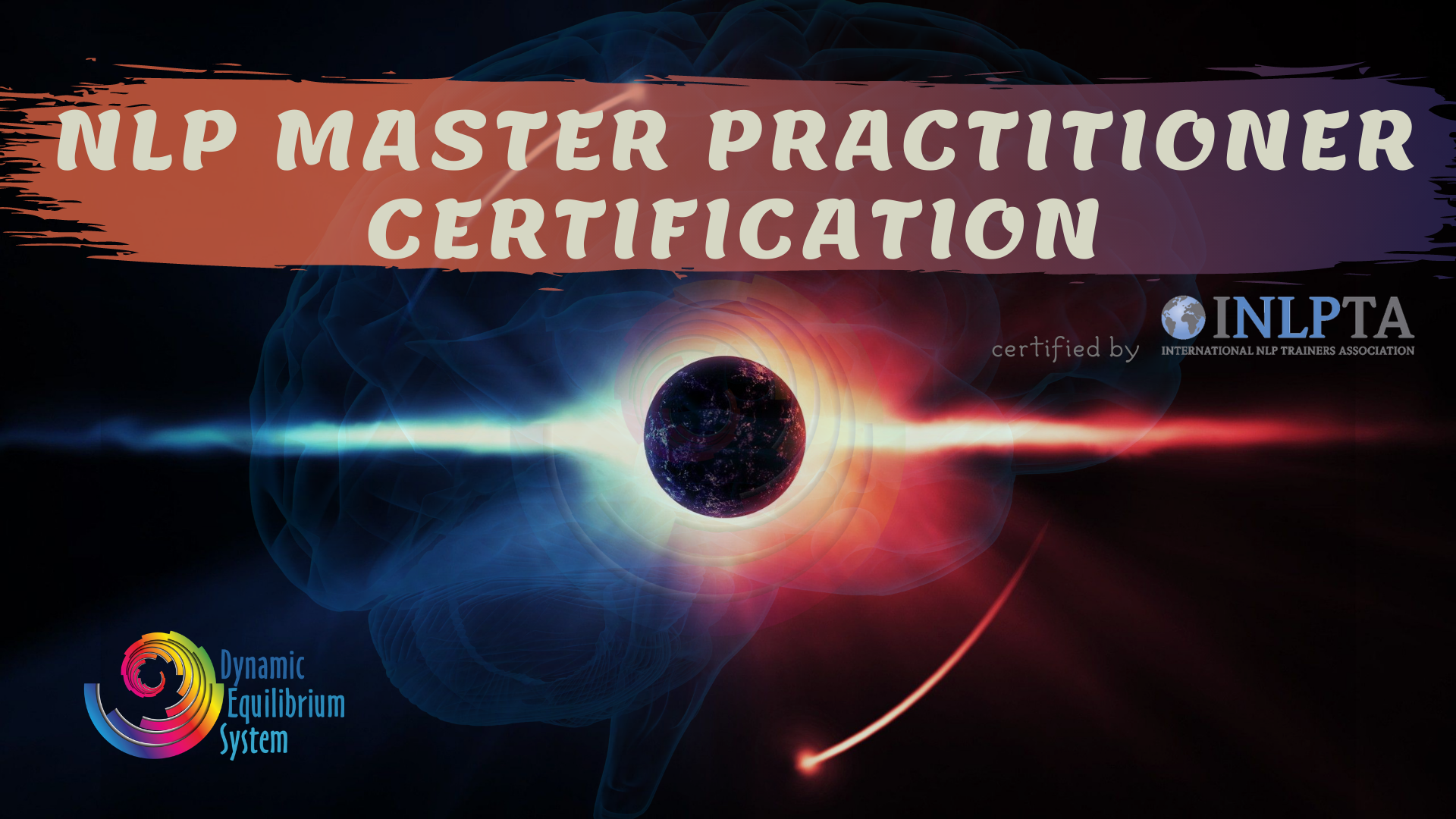Συγχαρητήρια!
Εφόσον διαβάζετε αυτό το κείμενο, κάνετε ήδη το 1ο βήμα για να αποκτήσετε μεγαλύτερο έλεγχο των συναισθημάτων σας, των σκέψεων σας, της επικοινωνίας σας και της ζωής σας.
Στον σημερινό ταχέως εξελισσόμενο κόσμο, η κατάκτηση των σωστών δεξιοτήτων είναι πιο κρίσιμη από ποτέ για να περιηγηθείτε στην πολυπλοκότητα, να ξεπεράσετε την υπερφόρτωση πληροφοριών και να μετατρέψετε τα όνειρα σε πραγματικότητα.
Αυτό το εκπαιδευτικό πρόγραμμα θα σας προσφέρει δεξιότητες και τεχνικές άμεσα αξιοποιήσιμες στην καθημερινή προσωπική και επαγγελματική σας ζωή και ένα Διεθνώς Αναγνωρισμένο Πιστοποιητικό από την INLPTA (International NLP Trainers Association) με εκπαιδευτή τον Νικόλα Φραγκιά ο οποίος βραβεύτηκε με το Παγκόσμιο Βραβείο από το ANLP ”Extraordinary Contribution during the Pandemic” για το έργο το οποίο επιτέλεσε με την ομάδα του!
Ο Νευρο-Γλωσσικός Προγραμματισμός (ΝΓΠ) είναι το σημείο όπου η μαγεία της νευροεπιστήμης, το βάθος της γλωσσολογίας και η ακρίβεια του προγραμματισμού συγκλίνουν, προσφέροντας μια μετασχηματιστική προσέγγιση για την αναδιαμόρφωση της πραγματικότητάς σας. Πρόκειται για την κατάκτηση της τέχνης της αλλαγής – μαθαίνοντας να αλλάζετε αυτό που επιθυμείτε, όχι μόνο αυτό που “πρέπει” να αλλάξετε.
Είναι η τέχνη και η επιστήμη του ΠΩΣ χρησιμοποιούμε το μυαλό μας για να επικοινωνούμε τόσο με τον εαυτό μας όσο και με τους άλλους.
Είναι η μελέτη της Υποκειμενικής Εμπειρίας.
Μέσω του NLP, θα ανακαλύψετε έναν εντελώς νέο τρόπο σκέψης, ώστε να γίνετε άριστοι επικοινωνιολόγοι, ευέλικτοι και επινοητικοί. Θα ανακαλύψετε πώς συνδεόμαστε με τον κόσμο μέσω των αισθήσεών μας, δημιουργώντας “εσωτερικές αναπαραστάσεις” που διαμορφώνουν τις εμπειρίες μας. Αυτές οι νοητικές εικόνες και τα μοτίβα, σαν ένας αόρατος σκηνοθέτης, επηρεάζουν τις αφηγήσεις της ζωής μας. Τι θα γινόταν όμως αν μπορούσατε να πάρετε την καρέκλα του σκηνοθέτη;
Το NLP σας διδάσκει να διακόπτετε αυτά τα αυτόματα “προγράμματα”, να τα ξαναγράφετε ώστε να εξυπηρετούν τους στόχους σας και να κατευθύνετε την ταινία της ζωής σας προς τα αποτελέσματα που επιθυμείτε. Δεν πρόκειται απλώς να δείτε τον κόσμο, αλλά να οραματιστείτε και να δημιουργήσετε τον κόσμο στον οποίο θέλετε να ζήσετε.
Τι θα έχετε κατακτήσει με το πέρας της εκπαίδευσης ;
- Μετατρέψτε τις προκλήσεις σε ευκαιρίες: Με τις τεχνικές του NLP, θα περάσετε από τη δημιουργία δικαιολογιών στην επίτευξη απτών αποτελεσμάτων. Μάθετε να αγκαλιάζετε τις προκλήσεις ως ευκαιρίες για ανάπτυξη και επιτυχία.
- Αναβαθμίστε την επικοινωνία σας: Κατακτήστε την τέχνη του επιδραστικού διαλόγου, της εκπαίδευσης και της καθοδήγησης. Εξοπλίστε τον εαυτό σας με τις δεξιότητες για να διαπρέψετε σε ποικίλα σενάρια επικοινωνίας, ενισχύοντας την επιρροή και την ηγεσία σας. Εμβαθύνετε στις αποχρώσεις της επικοινωνίας, μαθαίνοντας να διαβάζετε και να προσαρμόζεστε σε διάφορα στυλ. Αυτή η διορατικότητα θα μεταμορφώσει τις αλληλεπιδράσεις σας και θα αυξήσει την αποτελεσματικότητά σας σε κάθε ρόλο.
- Χτίστε ισχυρότερες σχέσεις: Σφυρηλατήστε βαθύτερες συνδέσεις και οικοδομήστε εμπιστοσύνη σε προσωπικά και επαγγελματικά περιβάλλοντα. Ανακαλύψτε πώς να δημιουργείτε σχέσεις βασισμένες στον αμοιβαίο σεβασμό και την κατανόηση σε κάθε είδους καταστάσεις.
- Κατακτήστε τη λήψη αποφάσεων και επιτύχετε τους στόχους σας: Αποκτήστε την αυτοπεποίθηση να παίρνετε αποφάσεις που συντονίζονται με τους πραγματικούς σας στόχους. Δουλέψτε πάνω στη διαύγειά σας για να επιλέγετε μονοπάτια που ευθυγραμμίζονται τόσο με τις προσωπικές σας φιλοδοξίες όσο και με τους επαγγελματικούς σας στόχους. Εφαρμόστε δομημένες στρατηγικές για να θέσετε, να κυνηγήσετε και να πραγματοποιήσετε τα όνειρά σας. Σας καθοδηγούμε μέσα από τη διαδικασία του πώς μετατρέπεται το όραμα σε πραγματικότητα, εξασφαλίζοντας ότι οι στόχοι σας είναι εφικτοί.
- Πλοηγηθείτε στην αλλαγή με αυτοπεποίθηση: Αγκαλιάστε και διαχειριστείτε την αλλαγή με ευκολία, χρησιμοποιώντας τα θεμελιώδη μοντέλα αλλαγής μας. Σας προετοιμάζουμε για να ηγηθείτε μέσα από καθοριστικές για την ζωή σας αλλαγές, καλλιεργώντας την ανθεκτικότητα και την προσαρμοστικότητα σε όλες τις πτυχές της ζωής.
- Ξεκινήστε ένα μετασχηματιστικό ταξίδι με το διεθνώς πιστοποιημένο σεμινάριο NLP Practitioner Certification. Εφοδιάστε τον εαυτό σας με τις δεξιότητες για να αναδιαμορφώσετε το μέλλον σας, να ενισχύσετε την καριέρα σας και να εμπλουτίσετε την προσωπική σας ζωή. Ελάτε μαζί μας για να γίνετε ένας φορέας αλλαγής, τόσο για τον εαυτό σας όσο και για τους άλλους.
Requirements for certification for INLPTA NLP Diploma are:
- Trained by an INLPTA registered NLP Trainer or Master Trainer
- Trained by an INLPTA registered NLP Trainer
- The certification training meets INLPTA training structure requirements
- Minimum of 130 hours training with personal assessments & practice groups.
- Minimum of 13-15 days course training.
- The attended training meets the INLPTA accreditation competency standards and guidelines
- The candidate has successfully met the competency standards of INLPTA of NLP Practitioner, as assessed by the registered INLPTA Trainer
- The certificate needs to be signed be at least one INLPTA NLP Trainer
- The certificates need to have the the starting and ending dates, aswell as the numbers of hous and dates written on them. And all certificated need to ordered by the international or national INLPTA coordinater and be numbered and sealed with the official INLPTA seal
General assessement criteria for NLP Practitioner
- The NLP Practitioner Certification process is based on your integration of self evolving and ecological attitudes, proficiency in NLP skills and abilities, and content knowledge of NLP principles and techniques.
- The NLP Practitioner Certification process will also be based upon your ABILITY TO ELICIT RESPONSES in the formal classroom setting and informally between yourselves. You will be evaluated as follows:
- Your ability to work from an OUTCOME FRAME, RESOURCEFUL STATES, SENSORY BASED CALIBRATIONS, and BEHAVIORAL FLEXIBILITY
- Your ability to MAINTAIN RAPPORT between yourself, the other participants, staff, instructors, assistants and anyone else associated with the training. If rapport is lost, you have the responsibility to re-establish it and maintain it through time
- Your ability to ELICIT the STATES and RESPONSES you are after within both yourself and others
- Your ATTENTION to and FACILITATION of ECOLOGY in all of your interactions with SELF and OTHERS
- Evaluation begins when you say “hello” and does not end; the evaluation is continuous and on a daily basis. Your skills will be evaluated periodically and suggestions made for improvement if necessary. A considerable amount of your evaluation rests on how you treat yourself, your peers and the trainers over time
- THE MOST POWERFUL FORM OF COMMUNICATION IS BEHAVIOR
- Integrating the NLP skills and concepts into your BEHAVIOR (what you do…how you act) is the evidence procedure for certification as a Neuro-Linguistic Programmer
The assessment criteria
- The most critical factor in evaluating practitioners will be their ability to:
- work within an outcome frame
- establish and maintain states of resourcefulness
- sort by others
- establish and maintain rapport
- respect and pace other people’s models of the world
- do effective and ecological change work
- Certification requirements are the successful completion of the following:
- written examination for intellectual competence
- behavioral examination for behavioral competence
- case study documentation or personal/professional application project report
- The assesement criteria of an INLPTA NLP Practitioner is based on:
- Attitude (embodiment of the presuppositions of NLP)
- Content Knowledge (frames, principles, techniques, distinctions)
- Behavioral Skills (demonstrated integration of leanings)
As an INLPTA NLP Practitioner, you are expected to demonstrate your behavioral integration and embodiment of the basic presuppositions of NLP
An INLPTA NLP Practitioner is expected to know the following NLP content at appropriate levels of frames, concepts, principles, processed, techniques, and distinctions:
- The Presuppositions of NLP
- The Legs of NLP
- The Present to Desired State Model
- Well Formed Conditions for Outcomes
- State Management
- Rapport
- Pacing and Leading
- Calibration
- Sensory acuity
- 7+/-2
- Uptime/Downtime
- Representational system
- Primary
- Lead
- Reference
- Predicates
- Eye Patterns
- Synesthesia
- Association and Dissociation
- V-K Dissociation, Double Dissociation
- Meta-Model
- Deep and Shallow Metaphors
- Basic Inductions
- Pacing and Leading
- Overlapping
- Anchoring
- Basic Anchoring
- Stacking anchors
- Collapsing anchors
- Chaining anchors
- Future Pacing
- Change Personal History
- Circle of Excellence
- Strategies
- TOTEs
- Well Formedness Conditions for Strategies
- Eliciting, Calibrating, and Utilizing Strategies
- Pattern Interrupts
- Sub–modalities
- Analogue and Digital Sub-modalities
- Critical and Driver Sub-modalities
- Phobia Cure
- Swish Pattern
- Standard Belief Change (mapping across Sub- modalities)
- NLP Frames:
- Outcome frame
- Backtrack frame
- Relevancy frame
- As If frame
- Open frame
- Discovery frame
- Contrast frame
- Ecology frame
- Agreement frame
- Reframing
- Content/Context reframes
- Simultaneous and Sequential Incongruity
- Visual Squash
- Basic Timeline work
- In time – Through time
- Basic Modeling
NOTE: All of the NLP skills listed below are required to be behaviorally demonstrated with both self and others.
- State Management – ability to:
- Access, elicit, and maintain any state as appropriate to the context
- Change and maintain any state as appropriate to the context
- Access and maintain supportive internal dialogue and external language patterns
- Access and maintain supportive internal images
- Access and maintain supportive physiologies
- Ability to work within these Frames as appropriate:
- Agreement Frame
- Responsibility/Choice Frame
- Relevancy Frame
- Backtrack Frame
- Discovery Frame
- 3 Legs of NLP
- Act As If Frame
- Presuppositions of NLP
- Present State to Desired State Model
- Unconscious/Behavioral Competence
- Ability to shift consciousness to external or internal as required by the task at hand
- Demonstration of ability to use NLP techniques on self and others
- Ability to shift between process, form and content as appropriate
- Chunking up, down, and laterally in internal processes and language patterns
- Ability to associate and dissociate as appropriate
- Sensory Acuity Development
- Behavioral flexibility throughout all representational systems
- Accessing split consciousness for multi-tracking
- Accessing Uptime and Downtime as appropriate to the context
- Ability to Establish and Maintain Rapport
- Ability to pace and lead (VAKAd)
- Ability to match and mirror (VAKAd)
- Whole body
- Part body
- Crossover mirroring
- Ability to Calibrate Non-verbal Cues
- Self
- Others
- Ability to Detect and Utilize Representational Systems
- Primary
- Lead
- Reference
- Synesthesia
- Ability to Detect and Work With Incongruity
- Simultaneous incongruity
- Sequential incongruity
- Within self
- Within others
- Ability to Meta Model
- Self
- Others
- Ability to distinguish between sensory specific and non-specific language
- Ability to Establish a Well Formed Outcome
- Self
- Others
- Ability to work from a Present to Desired State model
- Anchoring Skills
- Basic anchoring in all representational systems
- (Visual – Auditory – Kinesthetic – Auditory digital -VAKAd)
- Collapsing Anchors
- Chaining Anchors
- Future Pacing
- Change Personal History
- Self Editing
- Circle of Excellence
- Ability to Work From and Maintain Ecology Frames
- Ability to Check Ecology
- Ability to Milton Model to do Milton Model Work
- Ability to Create Deep and Shallow Metaphors
- Ability to do Reframing Patterns
- Content
- Context
- 6 Step
- Negotiation Between Parts
- Creating a New Part
- Visual Squash
- Ability to Work With Strategies
- Ability to Elicit, Detect, and Utilize TOTEs
- Ability to Detect, Install, Separate, and Utilize Synesthesia patterns
- Ability to Design a Well Formed Strategy
- Ability to do Effective and Ecological Pattern Interrupts
- Ability to Do Submodality Work
- Basic elicitations
- Working with critical and driver submodalities
- Basic mapping across
- Standard belief change
- Swish patterns
- Phobia cure
- Designer swish
- Basic timeline work
